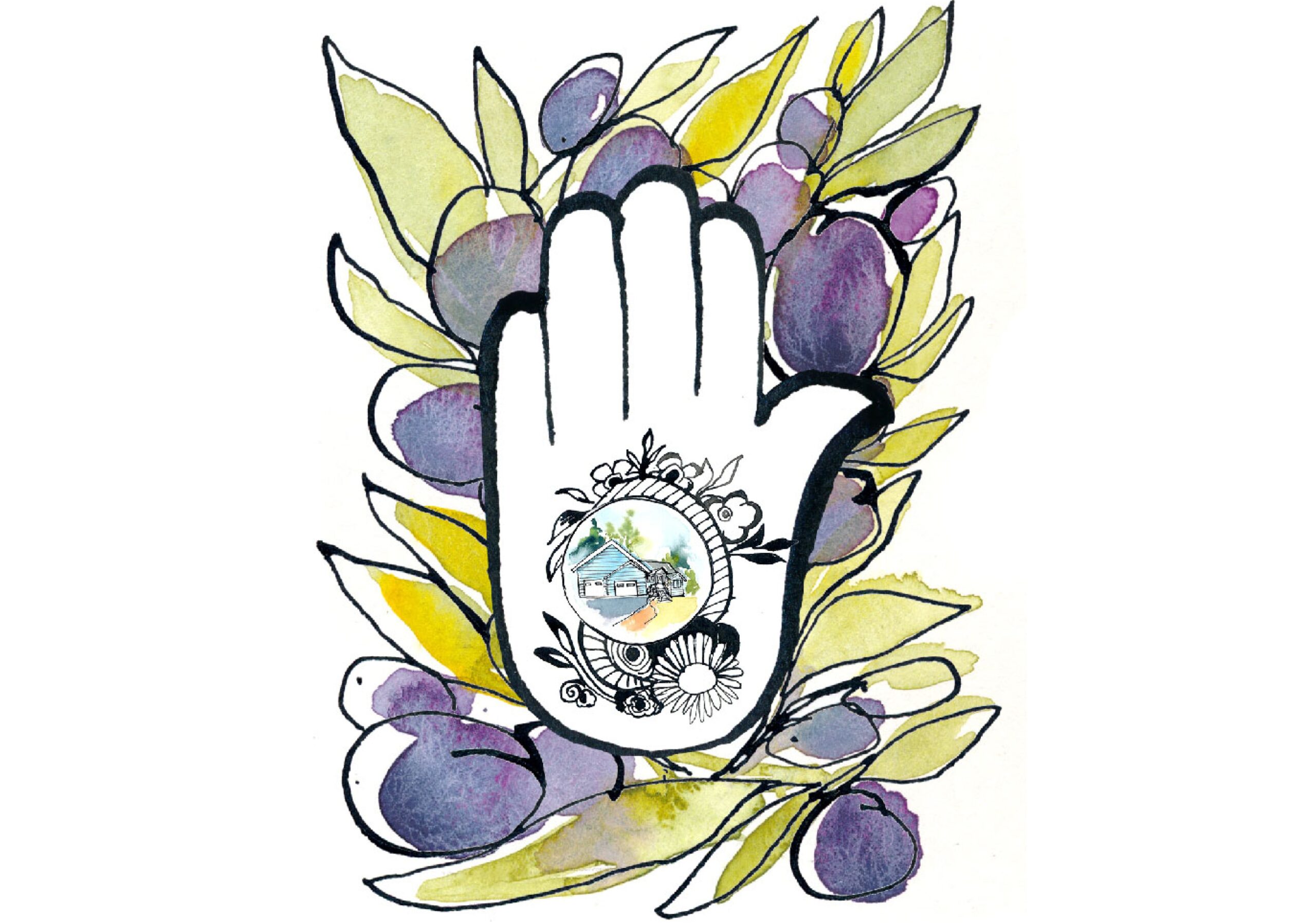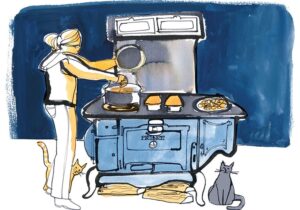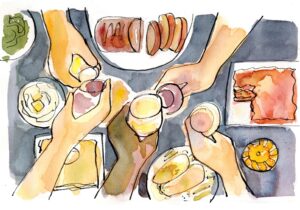Illustration by Carly Larsson
I have consciously always known that I did not want a life partner with a similar background to mine. That would mean knowing one another too well, and my father had already warned me to be careful—I had that “wandering way.” Familiarity breeds not only contempt but boredom, and both are dangerous. When my now husband, Chintan, approached me at a bar, he said, “You wear a wicked grin.” I didn’t know at the time that it wasn’t a line but a very distinct Santa Cruz/Mumbai lilt seasoned with English as a third language. In that moment, I simply knew I’d found the husband I hadn’t even known I’d been waiting for.
We were not daunted by the ferality of the abandoned slice of old dairy farm land on the outskirts of Hillsboro we found during our home search. Chintan never tired of spending nearly a year in the Hillsboro city offices, tackling one tangle after another of red tape. I never paused to wonder if it was a mistake to build our first home from scratch. Chintan was a Gujarati Indian, the eldest son and the first in his family to opt out of an arranged marriage, let alone marry a foreigner. What was building a house compared to that?
It turned out that building a house is a lot like cross-cultural, cross language, cross-racial and cross-ethnic marriage. Compromise is the foundation of everything, including learning to live together. This is true even in the most logistically sensical of relationships, but nothing about our life together made much inherent sense, logistical or otherwise.
I had grown up in Central Point, a small, Southern Oregon town where my dad was a foreman at the local mill and my mom was a housewife. We were poor. I didn’t know it for years. As a child, I lugged buckets of water for the horses and used their manure for my mom’s acre-sized garden. The thought of not utilizing every scrap of anything imaginable was near blasphemy.
Chintan was raised in a joint family and grew up in the heart of Mumbai. Trash seasoned the streets, even in the poshest neighborhoods, though he didn’t notice it much. Throughout India, it’s common practice to toss garbage on the roadside and out windows, but of course the sheer number of people quickly turned Mumbai into a veritable litter city.
It took a while to redirect Chintan to Oregon standards. I still remember, years ago, when he carefully watched me on a road trip as he considered dumping a plastic water bottle beside our parked car during a gas station stop. Ultimately, he didn’t, but not without a silent stare-down between us first. Perhaps that’s when he made his first step toward Oregonian status.
Over the next few years, as I spent summers calling countless relatives in India asking for Micchami Dukkadam blessings, embracing vegetarianism as a central practice and noticing my purchases of Ganesh statues growing larger (and becoming more central to our home), I noticed Chintan’s shifts too. He became fascinated with canning and capturing the literal fruits of our labors, and we hid jars of homemade plum jam in our suitcases on trips to India. I was always the one who carried the contraband, as my “passing” for completely white allowed me to bypass Indian immigration while he always had to pay a bribe to get through with minimal interrogation. He began to save any reusable cartons, using what he could as makeshift Tupperware while avoiding food carts that still used Styrofoam. For this year’s “big house project,” he pushed for installing an irrigation system to maximize lawn care (mostly for our almost-orchard of trees) while conserving water. He fired the landscaper because of the man’s insistence on using pesticides.
This is the intersection of where our marriage sits — marriage to one another, and our marriage to our shared world. We share an enormous amount and, looking back, always have. As I tell Chintan: “When Columbus happened upon me, he had been looking for — and thought he’d found — you.”
Jessica Mehta is a multi award-winning poet and author of over one dozen books, including The Wrong Kind of Indian, winner of gold at the Independent Publisher Book Awards.










